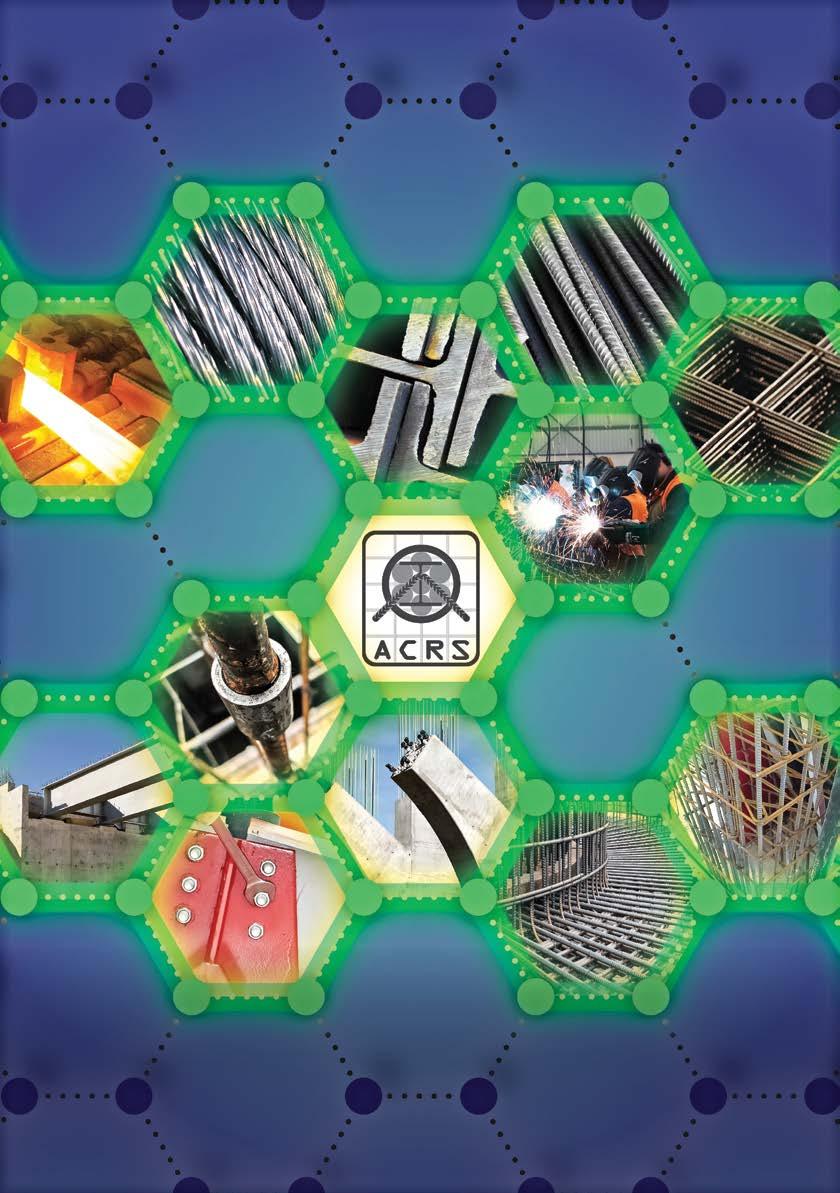
18 minute read
ACRS Feature
With the increasing number of different types of certification available in Australia and New Zealand, it has never been more important for industry to recognise the differences between the types of certifications and schemes available, and the different levels of assurance provided by the certificates issued by those schemes.
Certification types, certification differences, and your risks
Advertisement
by Philip Sanders, CEO, ACRS

As focus continues to intensify on non-conforming building materials, ACRS is increasingly asked questions about what certification does and which certificates can be relied upon. Unfortunately, these questions are sometimes only asked when it has been discovered that the materials delivered to, or worse still, installed on the project, have not met expectations.
The first thing to recognise is that there are several different types of certification.
The second, that in each type of certification there are the different levels available, offering different levels of product assurance to the end user.
These differences can be difficult to see at first look. For example, one certification level commonly offered, is “Type 5 certification”. This type comes from ISO 17067 which is a guideline document (NOTE: not a Standard) offering possible options to certification providers. Unfortunately, this is often presented as being the highest level of certification. What’s more, many also assume that any “Type 5” certification will deliver as well as any other. This is, simply, incorrect. As ISO 17067 itself describes, for “Type 5 certification” there are (only) four certification activities listed and further, it states “…the extent to which the four surveillance activities are conducted may be varied for a given situation as defined in the scheme.” Put simply, that means different schemes assessing the same product and process may: • Do different things • To different technical levels, • Using different levels of expertise • With different levels of rigour… … and still legitimately issue certificates described as “Type 5” certification that, on the face of it, look the same, leaving certificate users who do not understand the differences potentially risking use of non-conforming materials.
Below, I’ve listed some of the most common questions ACRS is asked by specifiers and users in relation to recognising these differences, what the limitations are, and the risks of automatic acceptance of certificates offered by different suppliers.

Why and How to Use the ACRS Steel Certification Scheme for Conformity Assurance for Infrastructure Construction Projects
Is ACRS the only JAS-ANZ accredited product certification body for steel to AS/NZS Standards? Absolutely not. JAS-ANZ accredits many product certification bodies, and several of these are accredited to provide product certification to AS/NZS steel Standards.
So, can I accept any other JAS-ANZ accredited product certification body to AS/NZ Standards? Yes, of course. However, as I’ve highlighted in previous articles, it is critical to remember “The extent to which … surveillance activities are conducted may be varied for a given situation as defined in the [individual] scheme.”
What’s the catch? JAS-ANZ accreditation of product certification schemes and certifiers does not mean that JAS-ANZ is saying all schemes do the same thing,
and provide similar outcomes - even if JAS-ANZ accredits them to certify the same products to the same Standards.
The potential catch, therefore, is that whilst you can choose to accept any scheme you wish, you cannot say that any JAS-ANZ accredited product certification scheme, by definition, provides the same level of assurance as any other. Again, as stated previously, different schemes assessing the same product and process may: do different things, to different technical levels, using different levels of expertise, with different levels of rigour.
So, on the face of it, while various schemes and certificates might look very similar, they may offer very different levels of assurance. With that in mind, as a specifier, or user of steel product certification, you must be confident that the individual scheme and its certification does what you expect, and you should always check what schemes and certificates are acceptable to the client – especially in government work.
What is ACRS and why is it different? ACRS specialist certification gives the highest level of steel certification available in Australia and New Zealand. Since 2001, ACRS has provided assessment and verification of manufacturers and suppliers using the 2-stage assurance process adopted in UK and modified for Australian and New Zealand Standards and practices. I’ve checked ACRS scheme and it stresses two stages of certification are necessary, not just one. Why should I require both stages? A lot can happen before steel arrives on your project. So, you should call up both stages to ensure you have certification covering more than simply steel manufacture.
One of the potential drawbacks of reliance on a single stage scheme, particularly if it is only for the mill of manufacture, is that such schemes usually cannot take into account what happens to the steel between leaving the mill and being dispatched to site. ACRS was designed to do more.
Quality (that is “compliant”) structures need conforming steels. Steel can be processed, fabricated, and welded perfectly, but if the steel used is “wrong", the structure is wrong. That’s why you need to specify steel certification that independently verifies the steel used conforms consistently to the right standards and is fully traceable through the supply chain from the steel mills used to the welded section fabricator with no substitutions, or mixing of sources. Only ACRS 2-stage certification system gives you chain of custody already included as part of steel product certification.
If you don’t use ACRS certification together with any other certifications you may choose to use (e.g. ISO 9001 quality systems certification, ISO 3834 welding systems certification, and general steelwork fabricator certification) you
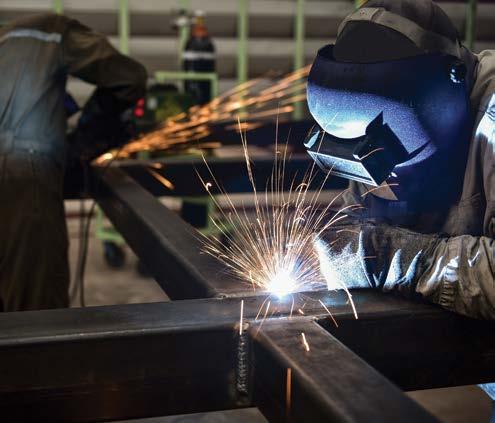
will need to actively sign-off the conformity of all the steel used for every delivery on your project. This is not an easy task for anyone, and it can come with real risks you won’t be able to verify all the steel to Standards.
So, choose ACRS Stage 1 steel manufacture certification and ACRS Stage 2 steel welded section certification. Simply specifying ACRS 2-stage certification makes demonstrating steel conformity easy for the steel suppliers, easy for the steel fabricators, and easy for you.
ACRS Reinforcing Steel Chain of Certification
Steel Maker Casting Mill
D-Bar/Coil D-Bar Manufacture (including Traceability)
Steel Reinforcing Cutting, Bending and Welding (including Traceability)
Rod Coil Manufacture
Wire Manufacture (including Traceability)
Mesh Manufacture (including Traceability)
Rod Coil Manufacture
Prestress Wire & Strand Manufacture (including Traceability)
Ancillary Products - e.g. couplers - (including Traceability)
Trader, Distributor, Stockist
Trader, Distributor, Stockist, Installer Steel Reinforcing Cutting, Bending and Welding (including Traceability)
TRACEABILITY
TRACEABILITY

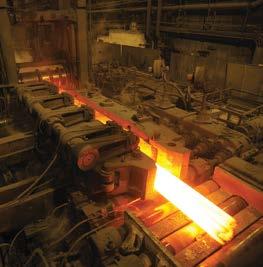


Can I use welded section fabricator or rebar processor certification by another scheme if the supplier assures me they will only use ACRS “Stage 1” manufactured steel? As above, you can choose a scheme other than ACRS. However, ACRS does not cover material transformed by other “Stage 2” certifiers because ACRS has not assessed and validated the fabricated product for both source material and what has been done during processing or welded fabrication, nor has ACRS reviewed materials traceability between the steel mill and the processor, or fabricator.
ACRS has had to disappoint several enquirers recently. Some discovered that despite assurances from the supplier, material was not even ACRS stage 1 certified and was unable to be verified to the steel Standard. Others have found that welded section fabricators and mesh manufacturers could not demonstrate that even where ACRS Stage 1 materials were used, that the steel was still conforming to Standards after fabrication, and were having problems with acceptance.
You need to be sure your steel procurement policies and specifications reference both ACRS steel manufacture certification (ACRS Stage 1) and then either ACRS rebar processing certification or ACRS structural steel welded section certification (ACRS Stage 2) to properly manage your risks of receiving non-conforming steel.
HOW DO I SPECIFY ACRS CERTIFIED STEELS?
The easiest way to manage and minimise the risk of non-conforming construction steels, is to specify ACRS certified steels.
FOR STRUCTURAL STEELS “Structural steels shall comply with AS 1074, AS 1442, AS 1579, AS/NZS 1163, AS/NZS 1594, AS/NZS 3678, AS/NZS 3679.1, or AS/NZS 3679.2, as appropriate.
Structural bolts shall comply with AS/NZS 1252. Where applicable, materials shall be fabricated in accordance with the “Fabrication” requirements in Section 14 of AS 4100 or Appendix G of AS 5100.6, or AS/NZS 2327, or NZS 3404, and the requirements of AS/NZS 5131.
Acceptable manufacturers of structural steels, structural bolts, and the fabricators of structural welded sections must hold a valid certificate of approval issued by the Australasian Certification Authority for Reinforcing and Structural Steels Ltd (ACRS), or to such other accredited product certification system as shall be demonstrated by the supplier to be directly equivalent in scope and technical rigour to ACRS and approved as such in writing by the specifier. Evidence of the supplier’s compliance with this clause must be obtained when contract bids are received.” FOR STEEL REINFORCING MATERIALS “Steel reinforcing and steel prestressing materials for concrete shall comply with AS/NZS 4671 or AS/NZS 4672, respectively. Where applicable, materials shall be cut and bent in accordance with the requirements of the "Material and Structural Requirements for Reinforcing Steel" clauses in AS 3600 or AS 5100.5, or the “Reinforcement” clauses of NZS 3109.
Reinforcing couplers shall comply with RMS specification RMS SF2013/184115 Approval of Mechanical Reinforcing Bar Splices, or NZTA SP/M/022 Bridge Manual (technical approval sections), as specified.
Acceptable manufacturers and processors of steel prestressing and steel reinforcing materials, including both manufacture and application of reinforcing couplers, must hold a valid certificate of approval issued by the Australasian Certification Authority for Reinforcing and Structural Steels Ltd (ACRS), or to such other accredited product certification system as shall be demonstrated by the supplier to be directly equivalent in scope and technical rigour to ACRS and approved as such in writing by the specifier. Evidence of the supplier’s compliance with this clause must be obtained when contract bids are received.”


































ACRS Structural Steel Chain of Certification
Steel Maker Casting Mill
Strip Manufacture
Hollow Section Manufacture (including Traceability)
Fabricator, Trader, Distributor, Stockist
TRACEABILITY
Structural Steel Bar and Section (including Traceability)
Rolled Plate, Floorplate & Slab Manufacture (including Traceability)
Welded Section Manufacture (including Traceability)
Ancillary Products - e.g. bolts - (including Traceability)
Fabricator, Trader, Distributor, Stockist
TRACEABILITY
Fabricator, Trader, Distributor, Stockist Fabricator, Trader, Distributor, Stockist
TRACEABILITY TRACEABILITY
For structural steels, ACRS certifies the steel mill of manufacture, who must actively demonstrate traceability of their supply to the steel distributor. ACRS is working with Steelwork Certification Australia to develop “end to end” certification from mill to site that will provide confidence in fabricated structural steels from the purchase of verified steel from ACRS certified mills right through to delivery of the finished fabricated steel to the project site.
Independent, Expert, Third Party Certification The only way to be truly sure that the materials being used conform fully with the appropriate Australian and New Zealand Standards and are fit for purpose, is through independent, expert third party certification with ongoing validation.
ACRS is an independent, expert, not for profit steel conformity body set up for consumer benefit. ACRS provides a fully independent, expert assessment and certification for both Australian and internationally sourced construction steels, including reinforcing steels, structural steels and prestressing steels and includes product traceability.
All ACRS auditors are qualified metallurgists with many years of experience working with steels.
ACRS certification makes checking for compliance with the relevant Australian and New Zealand Standards easy. It demonstrates INDEPENDENTLY and EXPERTLY that the supplier consistently meets the Standards stated on the certificate.
By using ACRS certified construction steels, builders and contractors can be confident that they are getting the AS/NZS compliant materials that they ordered, and engineers and building certifiers can be confident that steel meets the requirements of the Building Code and associated Standards. ACRS has operated to the UK version of the EU system since 2001, and ACRS is unlike any other system in Australia or New Zealand. As such, the ACRS scheme assesses several important aspects of supply of steel to Australian and New Zealand construction projects:
1. Steel manufactured to a specific standard (ACRS “Stage 1”), including: • Steel reinforcing bar • Steel reinforcing wire • Prestressing bar, wire, and strand • Structural steels
2. The subsequent working of ACRS “Stage 1” steel into its final form (ACRS “Stage 2”), including: • Processed (fabricated) steel rebar, • rebar threading and application of the coupler • welded steel mesh manufacture • structural steel welded sections from steel plate
3. The traceability of the steel between Stage 1 and Stage 2 to ensure integrity of supply, viz: • ACRS Stage 1 and ACRS Stage 2 certificate holders must hold ACRS certificates for all their sites and for all their AS/NZS materials to demonstrate they can manage full traceability of conforming materials; • ACRS Stage 2 certificate holders must only use ACRS Stage 1 materials • ACRS Stage 2 certificate holders must demonstrate that their process does not render Stage 1 steel non-conforming
Visit ACRS’ website at www.steelcertification.com for full details of all Stage 1 and Stage 2 certificate holders and materials to update your preferred supplier lists.
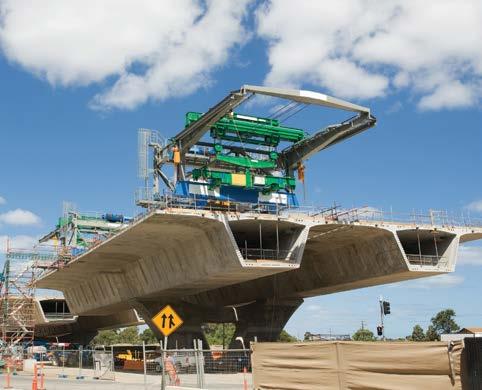
ACRS ‘End-to-End’ Traceability What Does End-to-End Really Mean? When we say ‘end-to-end’, we're talking about the ability to track information on all raw materials, components, and associated processes across the supply chain, including the design, manufacturing, supply, and delivery phases.
‘End-to-end’ traceability is directly comparable to ACRS product certification scheme’s cornerstone ‘All products, all locations rule’ which has provided market confidence in steels supplied under ACRS product certification for nearly 20-years.
The ACRS ‘Chain of Certification’ Construction steels manufactured to AS/NZS Standards can be rendered non-conforming by poor transformation, e.g. through such processes as cutting, bending and welding.
Certification systems that only assess the mill of manufacture do not provide for validated performance to Standards of the as-delivered product.
ACRS' 2-stage steel certification scheme and the new ACRS traceability scheme have been developed to give you confidence in your steel supply.
For reinforcing steels, ACRS certifies BOTH the steel mill that manufactures the steel AND the steel reinforcement processor and mesh supplier, while for structural steels, ACRS certifies the steel mill that manufactures the steel, AND the welded section manufacturer, who must actively demonstrate traceability of their supply to and from the steel distributor.
ACRS completes first coupler system and first coupler supplier certification to Road and Bridge Specifications ACRS co-operation program with the UK for certification of coupler manufacture and supply to the Australian and New Zealand construction industries sets a new international benchmark. ACRS has developed this new system with its UK sister organisation, UKCARES, with each benchmarking its processes and procedures against the other’s certifications. This process, is the first in a series of planned joint developments and delivers an unprecedented level of cooperation between international accredited product certification bodies, benefitting Australian and New Zealand consumers, construction industries, and conforming international product suppliers.

Under this signature new system, ACRS can now utilise relevant UKCARES’ technical reports and audit reports to leverage compatible technical information where equivalent to Australian and New Zealand requirements, reducing costs to suppliers and time to decision for ACRS certification. Similarly, UKCARES is able to accept compatible ACRS information.
ACRS coupler manufacture certification (Stage 1) and coupler application certification (Stage 2) is JAS-ANZ accredited and covers the requirements of both RMS and NZTA for approval of mechanical reinforcing bar splices, as well as the audit and verification requirements of the ACRS Product Scheme.
ACRS’ continued delivery of certification levels for the local businesses and agents of the coupler suppliers ensures the most rigorous verificationbased system available, exceeding the EU system in some important respects for suitable supply to Australian and New Zealand specifier and consumer requirements.



















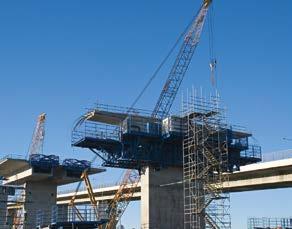
Be sure your coupler procurement policies reference both ACRS coupler manufacture certification (Stage 1) and ACRS coupler application certification (Stage 2) to manage your risks of both procuring non-conforming couplers and possible subsequent non-conforming application of approved couplers.

















ACRS Benchmarks against EU Peak Certifiers ACRS recently met peer certification bodies in UK, Germany and Italy, continuing ACRS' longstanding program of information and technical exchange operating since 2008.
This program of detailed discussions across a range of subjects between peer, independent certification bodies ensures ACRS continues to deliver assessment methodology,
meeting Australian and New Zealand
industry requirements to the highest levels.
Following on from these meetings, ACRS will be developing new areas of certification in consultation with key stakeholders, including Austroads and Engineers Australia representatives.










